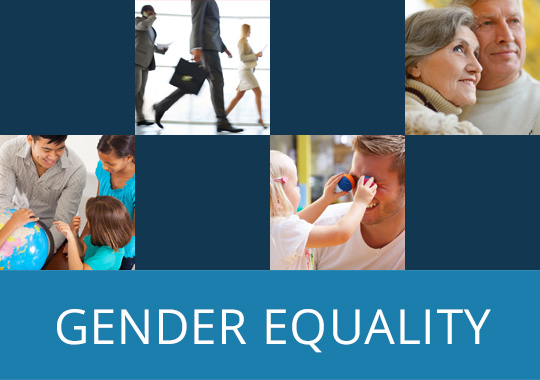Training seminars on women’s access to justice took place in Belarus for judges and prosecutors
After joining the Project “Improving Women’s Access to Justice in the Six Eastern Partnership Countries” (under the European Union and the Council of Europe Partnership for Good Governance) in 2017, the Belarusian National Institute for the Qualification of Judges, Prosecutors and Legal Professionals and the Council of Europe organised two training seminars for judges and prosecutors on women’s access to justice, held in Minsk on 12-13 September 2017. The seminars provided training to 26 judges and 27 prosecutors.
The Project aims to assist in the identification of main obstacles to justice that women experience in the Eastern Partnership region, and to support national authorities in developing more gender-responsive justice systems, including through the training of judges and prosecutors. The two seminars in Minsk had three main objectives:
- Strengthen the capacity of judges and prosecutors to incorporate a gender-responsive approach in their work;
- Increase the knowledge of judges and prosecutors on relevant international standards, including the European Convention on Human Rights and the Council of Europe Convention on Preventing and Combating Violence Against Women and Domestic Violence (the Istanbul Convention), as well as the United Nations Convention on the Elimination of all forms of Discrimination against Women;
- Pilot the Training Manual for Judges and Prosecutors on Ensuring Women’s Access to Justice (Training Manual) with the Belarusian National Institute and national experts.
Participants and experts discussed a number of critical questions relevant to the role of judges and prosecutors in improving women’s access to legal protection and remedies, including gender stereotyping in the judiciary, the compatibility of Belarusian national legislation with the Istanbul Convention, recent national legislative amendments, the conceptual framework on women’s rights and gender equality, and relevant procedural and practical considerations for Belarusian judges and prosecutors.
Discussion between the practicing judges and prosecutors was also facilitated by presentations and exercises led by national and international experts, including the Deputy Director of the Belarusian National Institute, Mr Vladimir Maroz, the Head of Department of the Ministry of Internal Affairs, Mr Aleh Karazei, the Head of Division of the Prosecutor General’s Office, Ms Maryna Popova, and Supreme Court Judge, Mr Dmitry Uloga, as well as Marina Ananenko, Project Manager with the UNFPA in Belarus. Ms Elisabeth Duban, lead author of the Training Manual and Antonina Vykhrest, Project Manager also took part in the seminar.





